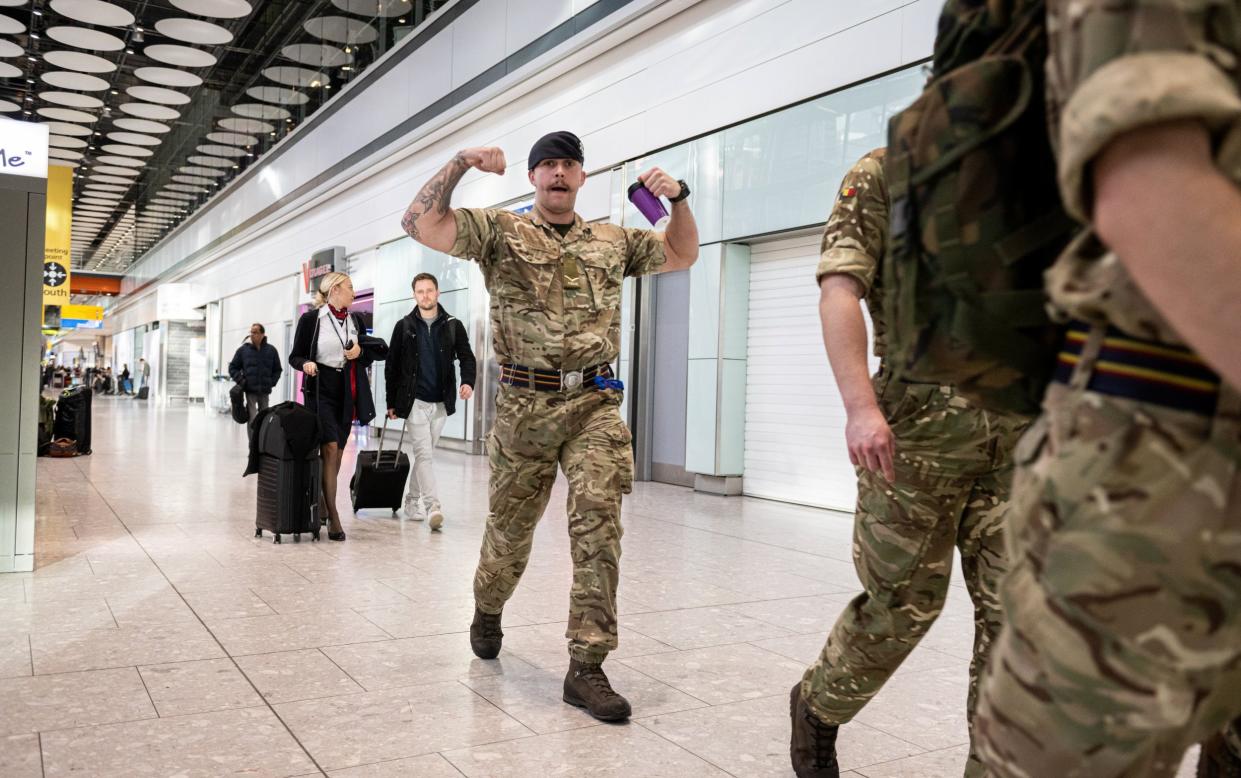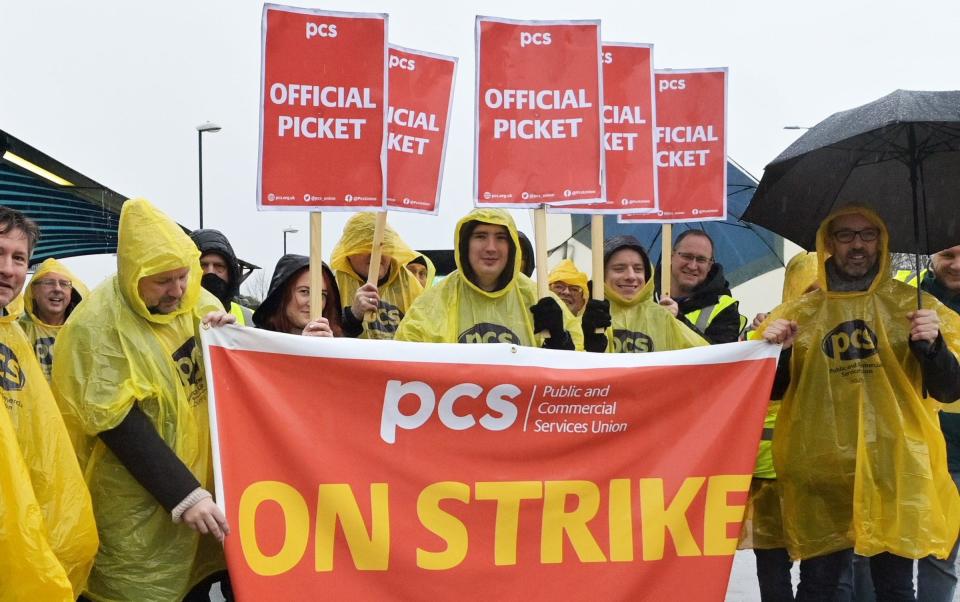Airports running ‘better than usual’ in ‘embarrassing’ blow to Border Force strikes

Passengers have said they wish the Army could man the borders permanently after airports ran smoothly on Friday in an “embarrassing” blow to striking Border Force workers.
The Government had been braced for disruption as a week-long strike by 1,000 passport staff at six airports began.
Families with young children, who cannot use electronic gates, were expected to bear the brunt of delays at border control, but there was no widespread disruption as travellers arrived home.
Military personnel and civil servants filled in for Border Force at major airports, including Gatwick and Heathrow, with passengers who had expected “carnage” suggesting border checks were quicker than normal.
Oliver Cohen, 31, from London, whose flight from Antigua to Heathrow landed at 9am, said the “military precision” of passport control was “embarrassing” for striking Border Force officers.
“It was probably the best experience I’ve had – no more than five minutes,” he told The Telegraph. “The e-gates were all open and the Army on all the border control desks were rapidly getting people through – far better than usual, to be honest.
“I was expecting huge delays and have engagement celebrations this afternoon, so it was a big relief. You can see when it’s run by the Army it’s on a different level of efficiency, they’re working at pace.
“To a large degree I think it makes the strike somewhat irrelevant and maybe even embarrassing for border control. Can we have the Army in charge every day, please?”

Trevor Boswell, who arrived into Heathrow Terminal Four from Jeddah, said he had “flown many times” into the airport but the soldiers “showed how it could and should be done”.
“I was very impressed with the number of servicemen manning both the counters and guiding passengers – they handled me with professionalism and in a calm manner, and within a few short minutes I was through,” he told The Telegraph.
“In comparison, I would say that 80 per cent of the time, you are processed and receive a cold and rude reception by the usual Border Force staff. Do I think this puts the position of the striking force under scrutiny? Yes, and rightly so.”
Travellers were warned to prepare for disruption at Heathrow, Birmingham, Cardiff, Gatwick, Glasgow and Manchester airports, and the port of Newhaven in East Sussex, with members of the Public and Commercial Services Union striking every day other than Tuesday until the end of the year.
As the union warned that the strikes could go on for months, the Ministry of Defence said members of the Armed Forces would get a £20 bonus for every day they spend training or deployed during the festive period.
In Manchester, Paul Simon, 42, from Wales, arrived at 11:35am and said he was out on the M56 just half an hour later thanks to the Royal Navy’s efficiency after the e-gates did not work.
“The Navy was at the available gates and asked the normal questions,” he said. “They scanned my passport and I was on my way.”
“I fully support strikes and I believe people deserve a decent wage, but after coming back from Dubai, where even trains are driverless, I also believe some services need to be modernised and maybe that sometimes means jobs have to go.”
Sneha Mistri, a choreographer, said there were “no delays at all” arriving at Birmingham from Madrid, adding: “It was totally clear at the gates on arrival, I didn’t notice any disruption. It seemed efficient – I’ve had delays at Birmingham before, but today was all clear.”
Data compiled by Cirium, an aviation data company, shows that 1,290 flights will arrive at airports affected by the strike on Friday, equating to over 250,000 seats. A further 1,009 flights, carrying up to 200,000 passengers, will arrive on Christmas Eve.
The airports facing strike action are set to process around 60 per cent of all arrivals in the UK by air over the two days.
Aviation sources also said queues were moving faster than they could have hoped. One said: “They are moving smoothly. Most people are making connections easily, which shows little disruption. Border Force will know whether it’s operating quicker, but maybe they won't want to admit that.”
Heathrow said immigration halls were “free-flowing” while Gatwick said it was not experiencing any delays.
The Home Office said it had “robust plans in place to minimise any delays” but said “passengers should be prepared for disruption and take action to plan ahead”.
A spokesman said: “Those intending to travel into the UK over strike days should keep up to date with the latest advice from operators to check how the strike action will affect their journey.”

 Yahoo News
Yahoo News 
